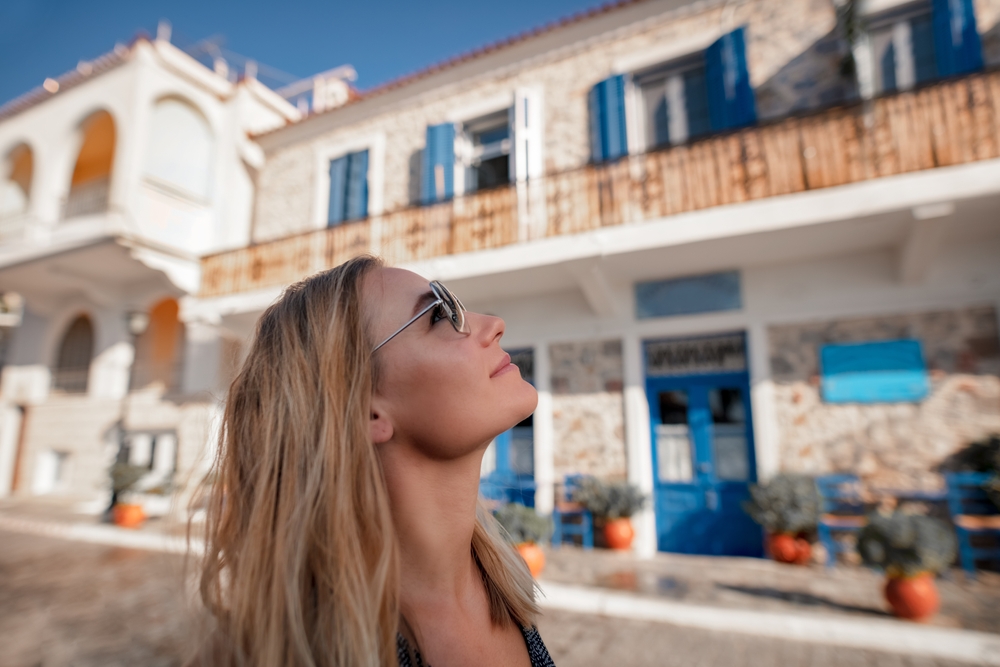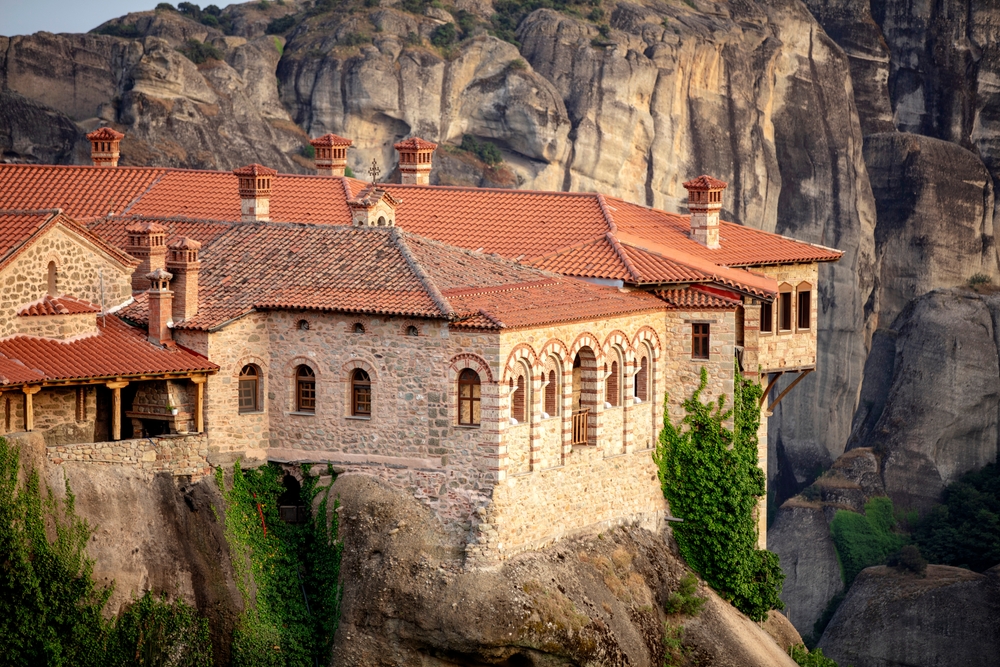Are you dreaming of crystal-clear waters, ancient ruins, and mouthwatering Mediterranean cuisine? Well, you’re not alone. Greece has been captivating visitors for centuries, and it’s no wonder why. From the iconic Acropolis in Athens to the stunning sunsets of Santorini, this country is a treasure trove of natural beauty and cultural wonders.
Sustainable Travel in Greece
So, what exactly is sustainable travel? Simply put, it’s a way of exploring the world that minimizes negative impacts on the environment and local communities while maximizing the positives. It’s about treading lightly, respecting local cultures, and ensuring that your tourist dollars benefit the people who call your destination home.
But here’s the thing: with great beauty comes great responsibility. As more and more people flock to Greece’s shores, it’s crucial that we think about how our travels impact this incredible destination. That’s where sustainable travel comes in. By making conscious choices, we can help preserve Greece’s natural landscapes and rich cultural heritage for future generations to enjoy. Trust me, it’s not just good for the planet – it’ll make your trip even more rewarding!
Read: Natural Disaster Alert Issued for Greece Amid Ongoing Wildfires
Benefits of Sustainable Travel

When you travel sustainably in Greece, you’re not just ticking off items on your bucket list – you’re actively contributing to the well-being of the places you visit. Imagine knowing that your choices are helping to protect those pristine beaches, support local artisans, and preserve ancient traditions. Plus, you’ll likely have more authentic experiences and deeper connections with the people you meet along the way. It’s a win-win situation!
Sustainable Transportation in Greece
Now, let’s talk about getting around in Greece. Transportation is a big part of any trip, and choosing sustainable options can make a huge difference. The good news? Greece has a pretty robust public transportation system that’s not only eco-friendly but also a great way to travel like a local.
Buses are your best friend for getting around cities and between towns on the mainland. They’re affordable, frequent, and give you a chance to chat with locals (brush up on your Greek phrases!). For longer distances, trains offer a scenic and relaxed way to travel, especially the route from Athens to Thessaloniki.
Island Hopping by Ferry
And let’s not forget about the Greek islands! Island hopping by ferry is not just iconic – it’s also one of the more sustainable ways to explore the archipelago. There’s something magical about watching the islands appear on the horizon as you approach. Just remember to book your tickets in advance during peak season.
Eco-Friendly Rentals
If you prefer more flexibility, consider renting an electric car or e-bike. Many cities and islands now offer these eco-friendly options, allowing you to explore off-the-beaten-path locations without leaving a big carbon footprint. And who doesn’t love the idea of zipping around Naxos on an e-bike with the wind in your hair?
Walking and Hiking
For city exploration and nature trails, nothing beats good old-fashioned walking. Many Greek cities have pedestrianized historical centers that are perfect for leisurely strolls. And if you’re up for a challenge, Greece boasts some incredible hiking trails. The Menalon Trail in the Peloponnese or the paths of Samaria Gorge in Crete offer breathtaking views and a chance to connect with nature.
Eco-Friendly Accommodation Choices
When it’s time to rest your head, Greece offers a growing number of eco-friendly accommodation options. Green-certified hotels and resorts are popping up all over, implementing practices like energy-efficient lighting, water conservation, and waste reduction. These places often go the extra mile to provide a great experience while minimizing their environmental impact.
Eco-Lodges and Sustainable Guesthouses
For a more intimate stay, look into eco-lodges and sustainable guesthouses. These smaller establishments often have a more personal touch and are deeply connected to their local communities. You might find yourself in a beautifully restored traditional stone house with solar panels and organic gardens.
Agrotourism and Farm Stays
But if you really want to immerse yourself in Greek rural life, consider agrotourism or a farm stay. These experiences allow you to live and work alongside local farmers, learning about traditional agricultural practices and enjoying the freshest produce imaginable. Imagine helping to harvest olives or learning to make your own feta cheese – now that’s a vacation story to write home about!
Supporting Local Communities
One of the most impactful ways to travel sustainably is by directly supporting the local communities you visit. Let’s explore how you can make a positive difference in Greece:
Choosing Locally-Owned Businesses and Accommodations
When you’re planning where to stay, eat, or shop, opt for locally-owned businesses. That charming family-run taverna or the small guesthouse owned by a Greek couple? They’re not just more authentic experiences – your money goes directly into the local economy. Look for accommodations and tours that proudly advertise their local ownership.
Read: Budget-Friendly Experiences in Lisbon, Portugal&Capital
Buying from Local Artisans and Markets
Greece is a treasure trove of handmade crafts and local products. Skip the mass-produced souvenirs and head to local markets instead. You’ll find everything from handwoven textiles in Metsovo to ceramic art in Sifnos. By purchasing directly from artisans, you’re not only supporting traditional crafts but also taking home a unique piece of Greek culture.
Participating in Community-Based Tourism Initiatives
Many Greek communities are developing sustainable tourism projects that allow visitors to engage more deeply with local life. Look for experiences like cooking classes with local chefs, guided walks led by community members, or workshops on traditional crafts. These initiatives often provide valuable income for communities while offering you an unforgettable, authentic experience.
Responsible Cultural Tourism
Greece’s rich cultural heritage is one of its biggest draws. Here’s how you can explore it responsibly:
Respecting Local Customs and Traditions
Before your trip, take some time to learn about Greek customs and etiquette. Simple gestures like dressing modestly when visiting churches or learning a few Greek phrases can go a long way in showing respect. Remember, you’re a guest in their country – embrace the local way of life!
Visiting Lesser-Known Historical Sites

While the Acropolis is breathtaking, Greece has countless other historical sites that are equally fascinating but far less crowded. Consider exploring places like Ancient Messene in the Peloponnese or the archaeological site of Dion in northern Greece. You’ll avoid contributing to over-tourism and might even have these incredible places all to yourself.
Supporting Preservation Efforts
Many historical sites and museums in Greece run preservation programs that visitors can support. Look for opportunities to donate to restoration projects or join guided tours that contribute to conservation efforts. Your visit can help ensure these treasures are preserved for future generations.
Sustainable Food and Dining
Greek cuisine is a highlight of any trip to the country. Here’s how to indulge responsibly:
Choosing Restaurants with Local, Organic Ingredients
Seek out restaurants that pride themselves on using locally-sourced, organic ingredients. Many places now highlight their farm-to-table practices or partnerships with local producers. Not only is this more sustainable, but it also usually means fresher, more delicious meals!
Trying Traditional Greek Dishes

Don’t be afraid to venture beyond moussaka and souvlaki. Each region of Greece has its own specialties – trying these not only expands your culinary horizons but also supports local food traditions. Ask locals for recommendations, and be adventurous with your choices.
Reducing Food Waste and Avoiding Single-Use Plastics
Greeks love generous portions, but try to order only what you can eat. If you’re staying somewhere with a kitchen, consider cooking some meals to reduce restaurant waste. And always carry a reusable water bottle and shopping bag to cut down on plastic waste.
Protecting Greece’s Natural Environment
Greece’s natural beauty is stunning, but also fragile. Here’s how you can help protect it:
Following Leave No Trace Principles
Whether you’re hiking in the mountains or lounging on the beach, always follow Leave No Trace principles. Pack out all your trash, stick to marked trails, and don’t disturb wildlife or plants. Small actions can have a big impact when everyone participates.
Participating in Beach and Nature Clean-Ups
Many coastal communities and environmental organizations in Greece organize beach clean-ups. If you’re spending time by the sea, why not dedicate a morning to helping out? It’s a great way to give back to the places you’re enjoying and meet like-minded travelers and locals.
Choosing Eco-Friendly Tours and Activities
When booking tours or activities, look for operators with strong environmental policies. Whether it’s a sailing trip around the islands or a guided hike, choose companies that prioritize sustainability and educate their guests about local ecosystems.
Read: The Secrets Behind Meteora&Monastic Cuisine
Water Conservation
Water is a precious resource in Greece, especially on the islands. Here’s how you can help conserve it:
Tips for Reducing Water Usage in Accommodations
Simple habits can make a big difference. Take shorter showers, reuse towels, and turn off the tap while brushing your teeth. If you notice any leaks in your accommodation, report them promptly to the staff.
Being Mindful of Water Scarcity on Islands
Many Greek islands face water shortages, especially during the busy summer months. Be extra mindful of your water usage when visiting islands. Consider choosing accommodations that have water-saving measures in place, like dual-flush toilets or rainwater harvesting systems.
Sustainable Island Hopping
Island hopping is a quintessential Greek experience. Here’s how to do it sustainably:
Choosing Less-Visited Islands
While Santorini and Mykonos are famous for a reason, consider adding some lesser-known islands to your itinerary. Places like Folegandros, Sifnos, or Ikaria offer equally beautiful landscapes and authentic experiences, without the crowds. You’ll reduce pressure on popular destinations and discover some hidden gems.
Using Eco-Friendly Ferry Options
When moving between islands, look for ferry companies that are taking steps to reduce their environmental impact. Some are investing in more fuel-efficient vessels or implementing recycling programs onboard.
Supporting Sustainable Initiatives on Islands
Many Greek islands are leading the way in sustainability. Tilos, for example, is aiming to be 100% powered by renewable energy. Research the islands you’re visiting and support local green initiatives where you can.
Responsible Wildlife Tourism
Greece’s diverse ecosystems are home to a variety of fascinating wildlife. Here’s how to enjoy animal encounters ethically:

Ethical Animal Encounters and Sanctuaries
If you’re eager to see Greek wildlife up close, seek out reputable sanctuaries and rescue centers. Places like Arcturos Bear Sanctuary in northern Greece or the Sea Turtle Rescue Centre in Zakynthos offer opportunities to learn about local species and support conservation efforts. Always do your research to ensure these facilities prioritize animal welfare over profit.
Avoiding Activities that Exploit Animals
Steer clear of attractions that exploit animals for entertainment. This includes rides on donkeys in Santorini (which can be harmful to the animals) or shows featuring captive dolphins. Instead, consider wildlife watching tours led by responsible operators who respect animals in their natural habitats. Birdwatching in Lake Kerkini or dolphin spotting in the Ionian Sea can be incredible experiences when done responsibly.
Sustainable Souvenirs
Bringing home mementos from your Greek adventure is part of the fun. Here’s how to shop sustainably:
Choosing Locally-Made, Eco-Friendly Souvenirs
Look for souvenirs that are not only locally made but also use sustainable materials. Handwoven textiles from local cooperatives, organic olive oil from small producers, or pottery made with traditional techniques are all great options. These purchases not only support local artisans but also help preserve traditional crafts.
Avoiding Products Made from Endangered Species or Ancient Artifacts
It might be tempting to buy a piece of “ancient” pottery or coral jewelry, but these items often contribute to the destruction of Greece’s natural and cultural heritage. Avoid anything made from endangered species (like sea turtle shells) or that claims to be an antiquity – it’s likely either illegal or fake. Stick to modern, sustainably-produced items instead.
Read: Solo Travel in Croatia: Tips and Destinations for a Safe and Memorable Adventure
Volunteer Opportunities
If you’re looking to give back during your trip, Greece offers several ways to do so responsibly:
Eco-Volunteering Options in Greece
Many organizations in Greece welcome volunteers for environmental projects. You could help with sea turtle conservation in Kefalonia, join a reforestation project in Athens, or assist with sustainable agriculture on a Greek island. These experiences not only contribute to local conservation efforts but also provide a deeper understanding of Greece’s environmental challenges.
Responsible Voluntourism Guidelines
While volunteering can be rewarding, it’s important to approach it responsibly. Choose projects where you can genuinely contribute without taking jobs away from locals. Short-term volunteers should focus on tasks that don’t require specialized skills or long-term commitment. Always vet organizations thoroughly to ensure they’re making a positive impact on local communities and environments.
Technology for Sustainable Travel
In our digital age, technology can be a powerful tool for sustainable travel. Here’s how to use it effectively in Greece:
Apps and Websites for Finding Sustainable Options
Several apps and websites can help you make sustainable choices in Greece. Platforms like Eco-Score or Green Key can guide you to eco-certified accommodations. For dining, apps like Eat With locals can connect you with authentic, home-cooked meals in Greek homes. Use travel planning apps that highlight public transportation options to reduce your carbon footprint.
Using Digital Resources to Reduce Paper Waste
Embrace digital alternatives to reduce paper waste. Download e-tickets for ferries and trains instead of printing them. Use navigation apps on your phone rather than paper maps. Consider guidebook apps or e-books instead of traditional paper guidebooks. Many museums and archaeological sites now offer digital guides, reducing the need for printed materials.
Remember, sustainable travel is about making mindful choices that benefit both you and your destination. By following these guidelines, you’re helping to preserve Greece’s natural beauty, support its local communities, and ensure that future generations can enjoy this incredible country just as much as you do.
So, are you ready to embark on your eco-friendly Greek odyssey? With these tips in mind, you’re all set for an unforgettable adventure that’s good for you, good for Greece, and good for the planet. Καλό ταξίδι! (Have a good trip!)






